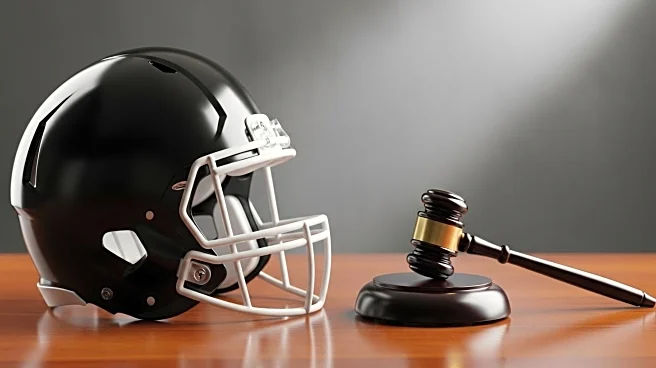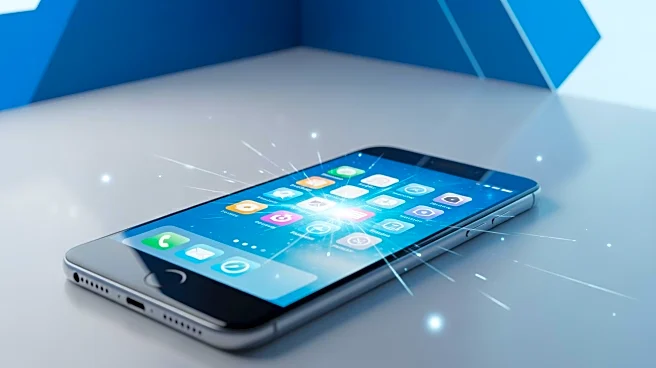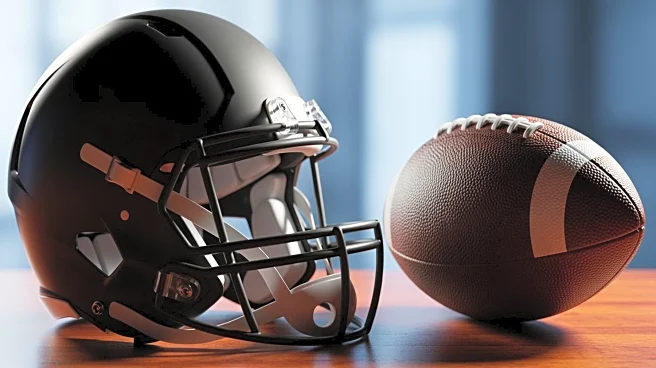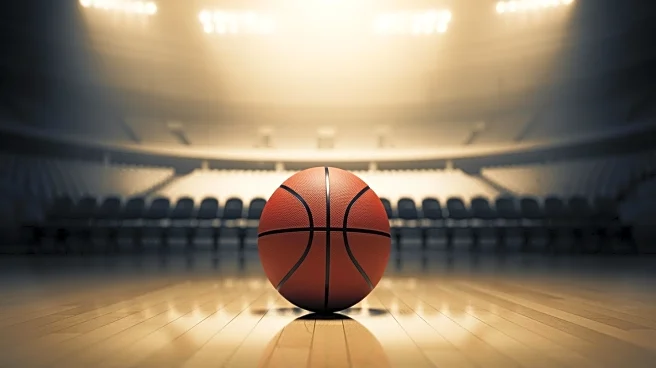What is the story about?
What's Happening?
A class-action lawsuit involving over 300 former Michigan football players, including notable names like Braylon Edwards, Mike Martin, and Denard Robinson, has been dismissed by a federal judge. The lawsuit sought more than $50 million in damages from the NCAA and Big Ten Network, claiming the players were unlawfully denied the ability to profit from their name, image, and likeness (NIL). Despite the dismissal, the players, represented by attorney Jim Acho, plan to appeal the decision to the Sixth Circuit Court of Appeals in Cincinnati. The lawsuit is part of a broader movement following a 2021 federal court ruling that allowed college athletes to monetize their NIL.
Why It's Important?
The dismissal of this lawsuit is significant as it highlights ongoing legal challenges related to NIL rights in college sports. The case underscores the complexities of retroactive compensation for athletes who played before the 2021 ruling. If successful, the appeal could set a precedent for similar cases, potentially leading to substantial financial implications for the NCAA and media networks. The outcome may influence future policies regarding athlete compensation and the use of their likenesses in broadcasts and merchandise. Stakeholders, including current and former athletes, universities, and sports networks, are closely monitoring the developments.
What's Next?
Attorney Jim Acho plans to file a notice of appeal in October, seeking justice for the former players. The appeal process could take several months, with potential hearings and rulings from the Sixth Circuit Court of Appeals. If the appeal is successful, it may lead to further legal proceedings or settlements. The case could also prompt discussions among lawmakers and sports organizations about the need for clearer regulations and protections for athletes' NIL rights. The NCAA and Big Ten Network may need to reassess their policies and strategies in response to the legal challenges.
Beyond the Headlines
The lawsuit and its appeal raise broader questions about the ethical and legal dimensions of athlete compensation. The case highlights the evolving landscape of college sports, where athletes are increasingly recognized for their contributions and rights. It also reflects societal shifts towards greater equity and fairness in sports, as athletes seek to reclaim control over their personal brands. The legal battle may inspire other athletes to pursue similar claims, potentially leading to widespread changes in how sports organizations handle NIL rights.















